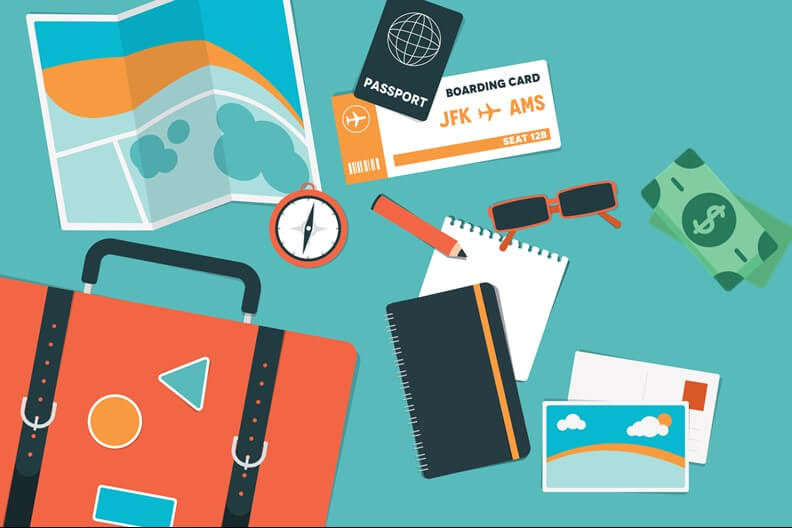Employee morale has drastically declined due to continuing layoffs and the persistence of high inflation rates. Make no mistake, employee dissatisfaction is a very real problem, not just a minor inconvenience. Currently, low morale has led to six in 10 employees quiet quitting, which means they are psychologically disengaging from their job. (1) In fact, a staggering 73% of employees would consider leaving their employer if they got the right offer. (2)
As “quitting” implies, these workers are also looking for a new opportunity they deem more fulfilling than their current role. Considering that replacing an employee costs between 75% and 200% of their annual pay, improving employee retention levels should be a top priority for any organization. (3)
With many companies feeling the need to cut costs in the current economic climate, it is easy to assume that employee incentives like all-expense-paid trips should be on the chopping block. Yet, investing in travel incentives can help save money (among other benefits), by keeping employees motivated and engaged.
Here are 3 reasons why it pays to include travel incentives in your organization’s budget.
1- THE PROOF IS IN THE NUMBERS
If you need an evidence-based reason to offer travel incentives, consider the following statistics:
- Productivity increased 9% at companies with 10,000 employees that have an established recognition program – resulting in an average of $92 million in increased output.
- Absenteeism decreased 22% at the same companies, giving them an average of $3 million in cost savings.
- Sales teams at companies of all sizes with an incentive program achieved a 79% success rate.
Source: (4)
It is hard to argue with numbers. And these numbers paint a compelling picture of just how valuable an effective incentive program is.
2- TRAVEL INCENTIVES ARE ATTRACTIVE
“Effective” is the key word when it comes to the value of a recognition program. The Incentive Research Foundation discovered that travel is the most preferred award for high-producing employees.(6)
Travel incentives pack a powerful punch. Incentive travel boosts sales productivity by 18% on average and has an average return on investment of 112%. (5) Even more compelling is that the experiences and memories of a travel incentive last a lifetime!
Why are travel rewards so impactful?
Exotic Destinations Are Aspirational
Aside from influencers who are paid to do so, many people who share their travel experiences on social media do so out of a desire to impress their peers. They view travel as a lofty goal they can aspire to, and this drives their motivation.
Whereas bragging about how much money they make could be viewed as tacky, sharing their latest travel destination easily passes as enthusiastic. When the trip is earned, then planned by the company to ensure a fantastic adventure, the employee can relax, enjoy the experience, and make lifelong memories.
Experiential Incentives Are Memorable
Traveling gives people the opportunity to escape the mundane routine of their daily lives. And while an exotic locale is ideal, even an interesting destination that is just a few hours away can do the trick.
The novelty of incentive travel makes it memorable. In other words, the employees who go on these trips will remember them – and, most importantly, remember their employer as the one who made the trip possible. In this way, they develop a favorable view of your company, which in turn improves their engagement level.
Travel Incentives Are Different from the Rest
Think about it: How many people do you know who work for companies that offer paid trips to far-flung locations? It is probably very few. This makes travel incentives unique among other incentives.
One-of-a-kind incentives feel personalized and make employees feel special.
3- SOUGHT-AFTER DESTINATIONS SPARK HEALTHY COMPETITION
One of the factors that makes employees want to work towards incentives is knowing they are in competition with their teammates for them. It goes back to the point about wanting to impress their peers. Competition also elevates the desirability of incentives and drives the motivation to earn them.
When competition in the workplace is healthy and good-natured, it becomes an effective team-building opportunity. Employees find themselves interacting more, even if they are just teasing their co-workers in a jovial manner about who is going on the incentive trip. That said, you need appealing incentives like travel to ignite the spark of competition in the first place.
MONEY WELL SPENT
By reframing the way leadership views the cost of travel incentives, you can recognize their true worth. While offering them requires spending a little extra money upfront, the investment will pay off in terms of employee engagement, performance, and retention.
Non-cash incentives can be a valuable method to achieve longer-term business objectives, but they require careful and thoughtful planning. For more information about planning travel as an incentive contact Gavel International.
_______________________
SOURCE(S):
1 https://www.gallup.com/workplace/349484/state-of-the-global-workplace.aspx
2 https://www.businessinsider.com/great-resignation-labor-shortage-workers-thinking-about-quitting-joblist-report-2021-10?r=US&IR=T
3 https://hiring.monster.ca/resources/workforce-management/employee-retention-strategies/why-people-leave-their-jobs-ca/
4 https://workhuman.com/resources/reports-guides/from-praise-to-profits-workhuman-gallup-report/
5 https://theirf.org/
6 http://theirf.org/research/2015-landmark-study-participant-award-experience-preferences/1619/
- Unlocking Excellence: The 7 Traits of Top Performers and Their Impact - April 14, 2025
- Why Content Is Essential for Driving Leads – and How to Create Content That Does - March 3, 2025
- Branding vs. SEO: Striking the Perfect Balance - February 10, 2025






